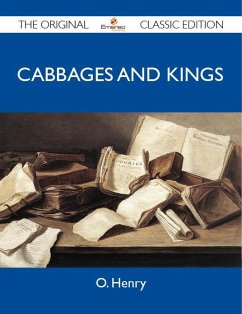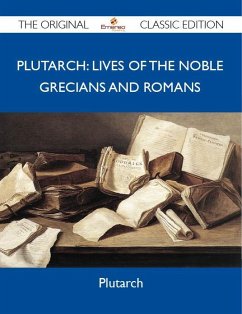This is a high quality book of the original classic first edition from 1613.
This is a freshly published edition of this culturally important work, which is now, at last, again available to you and contains the original 1613 text detailing the lives of:
William I (c.?1028 ? 9 September 1087), also known as William the Conqueror (Guillaume le Conquérant), was the first Norman King of England from 1066 until 1087. He was also Duke of Normandy from 3 July 1035 until his death, under the name William II. Before his conquest of England, he was known as William the Bastard because of the illegitimacy of his birth.
William II (French: Guillaume II dAngleterre; c.?1056 ? 2 August 1100), the third son of William I of England, was King of England from 1087 until 1100, with powers over Normandy, and influence in Scotland. He was less successful in extending control into Wales. William is commonly known as William Rufus, perhaps because of his red-faced appearance.
Henry I (c. 1068/1069 ? 1 December 1135) was the fourth son of William I of England. He succeeded his elder brother William II as King of England in 1100 and defeated his eldest brother, Robert Curthose, to become Duke of Normandy in 1106. A later tradition called him Beauclerc for his scholarly interests? he could read Latin and put his learning to effective use? and Lion of Justice for refinements which he brought about in the royal administration, which he rendered the most effective in Europe, rationalizing the itinerant court, and his public espousal of the Anglo-Saxon legal tradition.
Enjoy this classic work. These few paragraphs distill the contents and give you a quick look inside:
Another is, for that men might safely write of others in a tale, but in maner of a History,4 safely they could not: because, albeit they should write of men long since dead, and whose posteritie is cleane worne out; yet some aliue, finding themselues foule in those vices, which they see obserued, reproued, condemned in others; their guiltinesse maketh them apt to conceiue, that whatsoeuer the words are, the finger pointeth onely at them.
...I answered, that I had wrote of certaine of our English Kings, by way of a briefe description of their liues: but for historie, I did principally bend, and binde my selfe to the times wherein I should liue; in which my owne obseruations might somewhat direct me: but as well in the one as in the other I had at that time perfected nothing.
...The valley couered, and in some places heaped with dead bodies of men and horses:22 many not once touched with any weapon, lay troden to death, or else stifled with dust and sand: many grieuously wounded, reteined some remainder of life, which they expressed with cries and groanes: many not mortally hurt, were so ouerlaid with the slaine, that they were vnable to free themselues: towards whom it is memorable, what manly both pitie and helpe the Normans did affoord.
...And yet the King did againe enterprise vpon him, with greater forces then at any time before: But the Duke entertained his Armies with so good order and valoure, that the King gained nothing but losse and dishonour: and the greater his desire was of victorie and reuenge, the more foule did his foiles and failings appeare; which so brake both his courage and heart, that with griefe thereof (as it was conceiued) hee ended his life.
...At such time as Egelred was first ouercharged with warres by the Danes, he sent his wife Emma, with two sonnes which she had borne vnto him, Alphred and Edward, into Normandie to her brother; where they were enterteined with all honourable vsage for many yeeres.
This is a freshly published edition of this culturally important work, which is now, at last, again available to you and contains the original 1613 text detailing the lives of:
William I (c.?1028 ? 9 September 1087), also known as William the Conqueror (Guillaume le Conquérant), was the first Norman King of England from 1066 until 1087. He was also Duke of Normandy from 3 July 1035 until his death, under the name William II. Before his conquest of England, he was known as William the Bastard because of the illegitimacy of his birth.
William II (French: Guillaume II dAngleterre; c.?1056 ? 2 August 1100), the third son of William I of England, was King of England from 1087 until 1100, with powers over Normandy, and influence in Scotland. He was less successful in extending control into Wales. William is commonly known as William Rufus, perhaps because of his red-faced appearance.
Henry I (c. 1068/1069 ? 1 December 1135) was the fourth son of William I of England. He succeeded his elder brother William II as King of England in 1100 and defeated his eldest brother, Robert Curthose, to become Duke of Normandy in 1106. A later tradition called him Beauclerc for his scholarly interests? he could read Latin and put his learning to effective use? and Lion of Justice for refinements which he brought about in the royal administration, which he rendered the most effective in Europe, rationalizing the itinerant court, and his public espousal of the Anglo-Saxon legal tradition.
Enjoy this classic work. These few paragraphs distill the contents and give you a quick look inside:
Another is, for that men might safely write of others in a tale, but in maner of a History,4 safely they could not: because, albeit they should write of men long since dead, and whose posteritie is cleane worne out; yet some aliue, finding themselues foule in those vices, which they see obserued, reproued, condemned in others; their guiltinesse maketh them apt to conceiue, that whatsoeuer the words are, the finger pointeth onely at them.
...I answered, that I had wrote of certaine of our English Kings, by way of a briefe description of their liues: but for historie, I did principally bend, and binde my selfe to the times wherein I should liue; in which my owne obseruations might somewhat direct me: but as well in the one as in the other I had at that time perfected nothing.
...The valley couered, and in some places heaped with dead bodies of men and horses:22 many not once touched with any weapon, lay troden to death, or else stifled with dust and sand: many grieuously wounded, reteined some remainder of life, which they expressed with cries and groanes: many not mortally hurt, were so ouerlaid with the slaine, that they were vnable to free themselues: towards whom it is memorable, what manly both pitie and helpe the Normans did affoord.
...And yet the King did againe enterprise vpon him, with greater forces then at any time before: But the Duke entertained his Armies with so good order and valoure, that the King gained nothing but losse and dishonour: and the greater his desire was of victorie and reuenge, the more foule did his foiles and failings appeare; which so brake both his courage and heart, that with griefe thereof (as it was conceiued) hee ended his life.
...At such time as Egelred was first ouercharged with warres by the Danes, he sent his wife Emma, with two sonnes which she had borne vnto him, Alphred and Edward, into Normandie to her brother; where they were enterteined with all honourable vsage for many yeeres.
Dieser Download kann aus rechtlichen Gründen nur mit Rechnungsadresse in A, D ausgeliefert werden.









